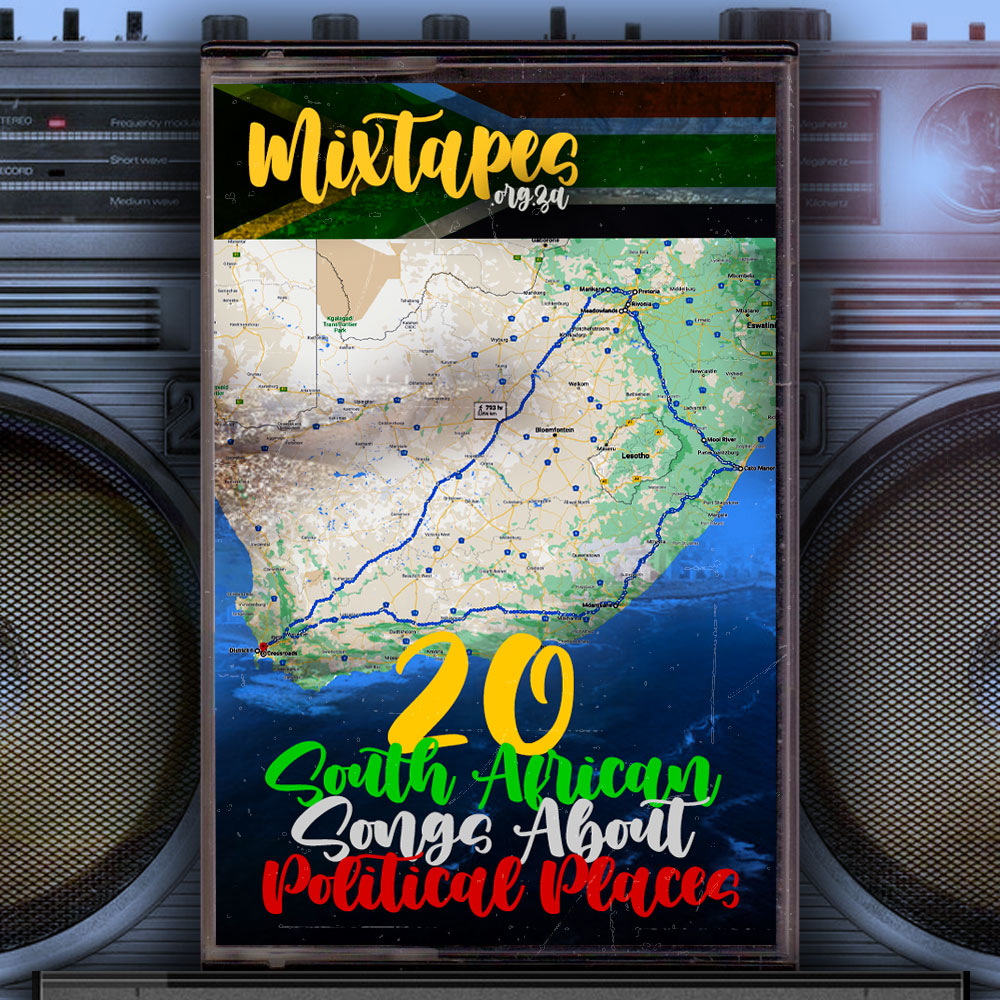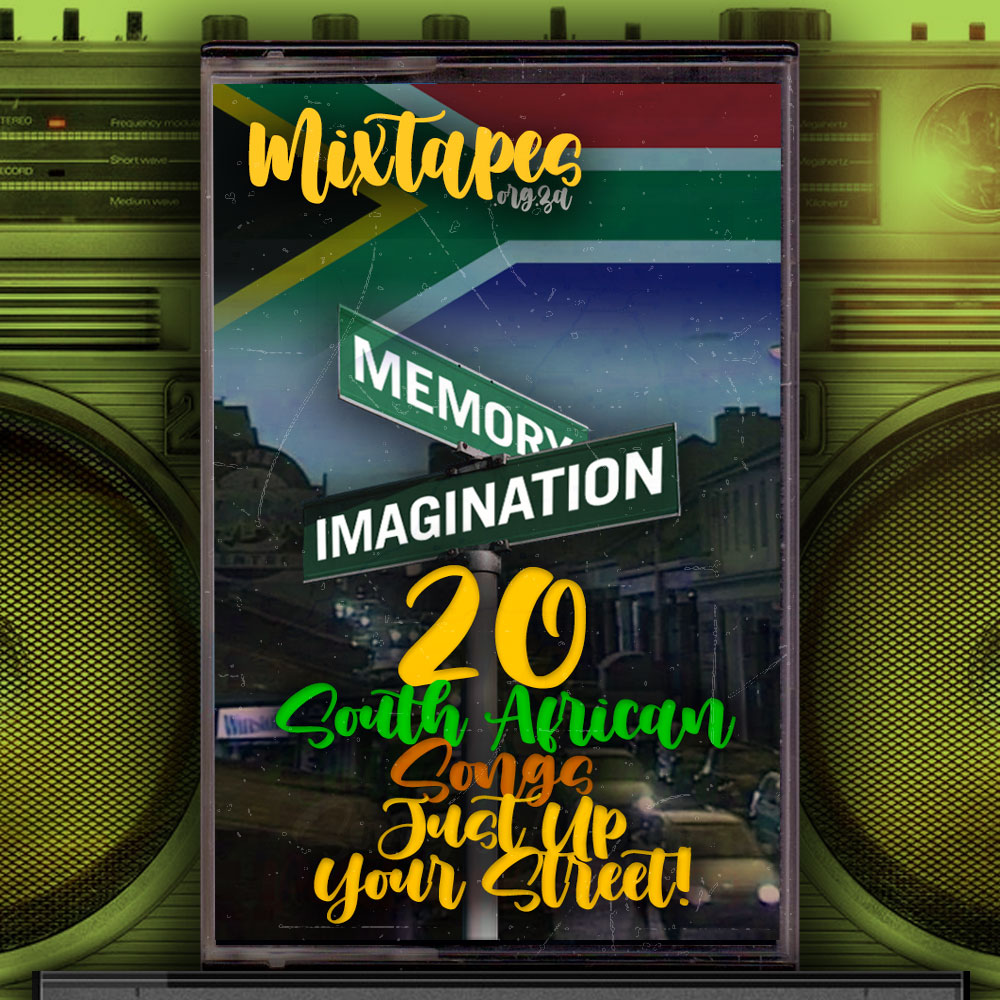
Music has the ability to capture moments and sentiments. On occasion it reminds us of places and also of events which transpired in those places. This mixtape includes a selection of musical pieces written about political events which unfolded in specific places in South Africa. Some of these focus on particular events such as the Rivonia Treason Trial, the Mdantsane bus strike, and the Marikana Massacre, while the majority reflect in one way or another on that especially heartless apartheid practice of forced removals: moving people against their will from the place they called home to a different, hostile, and unfriendly place: away from one’s community, away from all the familiar associations of home. Because forced removals were so painful it is no surprise that there are so many compositions about places from which people were forced to move by the apartheid state. Sophiatown, Cato Manor, Crossroads, and District Six are covered in this mixtape . People lost their homes and their communities but held onto their memories … and the songs remain.
One of the songs included here captures the mood of most, if not all, the pieces featured on this mixtape. In Mdantsane in July 1983, in response to severe price increases, a boycott was called, of buses partly owned by the Ciskei government. The apartheid Ciskei security forces, supported by vigilantes, attempted to force people to use the buses, resulting in bloody assaults, injuries and death. Johnny Clegg and Sipho Mchunu wrote the song “Mdantsane” about the bus boycott. They asked, “Why don’t you sing about the African moon; Why don’t you sing about the leaves and the dreams; Why don’t you sing about the rain and the birds?” And they answered, “’Cause mister I’ve seen mud coloured dusty blood; Bare feet on a burning bus; Broken teeth and a rifle butt; On the road to Mdantsane.”
All the musicians on this mixtape similarly chose to document government and employer atrocities rather than to only sing about the leaves and the dreams.
Mzwakhe Mbuli contemplated the apartheid legislative capital, Pitoli, Dolly Rathebe & the Elite Swingsters commemorated the accused at the Rivonia treason trial, and Lesego Rampolokeng and the Kalahari Surfers reflected on the Sebokeng siege. The Junction Avenue Theatre Company (who performed the musical Sophiatown), the African Jazz Pioneers, and Miriam Makeba & the Skylarks all lament the forced removals from and bulldozing of Kofifi/Sophiatown, while Nancy Jacobs & her Sisters sang about people’s reluctance to be moved from Sophiatown to Meadowlands, established by the apartheid state as an alternative township to Sophiatown. In a song named after Soweto, Barry Gilder sings of the struggle to live and work in South Africa, in a society where people were expected to travel vast distances under the migrant labour system, yet whose lives were not valued by business owners and the government. Stimela’s “Soweto save the children” alerted listeners to the detrimental effects apartheid was having on the children of Soweto.
The only song on this mixtape about a post-apartheid atrocity is Lilitha’s mournful “Marikana” about the Marikana Massacre. A reminder that the alliance between the government and capital continues to be problematic, even in a post-1994 government, and an even harsher reminder as to where exactly the state is prepared to draw a moral line.
Sipho Gumede & Pops Mohamed remembered Cato Manor in the Durban area and Juluka documented the violence surrounding the Mdantsane bus boycott. The mixtape ends with a series of songs related to the Western Cape. Winston Mankunku and Mike Perry, Sakhile, Syd Kitchen, and Roger Lucey all contributed songs about the apartheid state’s attack on the residents of Crossroads, targeted for forced removal. “Mooi River Textiles” is a song by workers at that factory, recorded and documented by Shifty Records. Finally Cyril Valentine (with a song from the District Six musical), Hugh Masekela (featuring Corlea) and Abdullah Ibrahim, remember District Six, another area which the apartheid state decided to bulldoze into oblivion and forcibly remove all its inhabitants because they decided to rezone it as a white area.
Sometimes the songs on this mixtape are a mournful and painful reminder of places, and sometimes they recall spirited community togetherness. They often remind us of defiance – that people resisted and continue to resist oppressive laws, policies and actions. Crucially, they are documents of the events that occurred and of the places where they took place. As long as this music plays we cannot be allowed to forget.
- Pitoli – Mzwakhe Mbuli
- Rivonia – Dolly Rathebe & The Elite Swingsters
- Sebokeng Siege – Lesego & Kalahari Surfers
- Kofifi Sophia – Junction Avenue Theatre Company
- Kofifi – African Jazz Pioneers
- Sophiatown Is Gone – Miriam Makeba & The Skylarks
- Meadowlands – Nancy Jacobs & Her Sisters
- Soweto Song – Barry Gilder
- Soweto Save The Children – Stimela
- Marikana – Lilitha
- Remember Cato Manor – Sipho Gumede & Pops Mohamed
- Mdantsane – Juluka
- Crossroads Crossroads – Winston Mankunku & Mike Perry
- Crossroads – Sakhile
- Crossroads – Syd Kitchen
- Crossroads – Roger Lucey
- Mooi River Textiles – Fosatu Worker Choirs
- Heart Of District Six – Cyril Valentine
- District Six – Hugh Masekela & Corlea
- District Six – Abdullah Ibrahim



